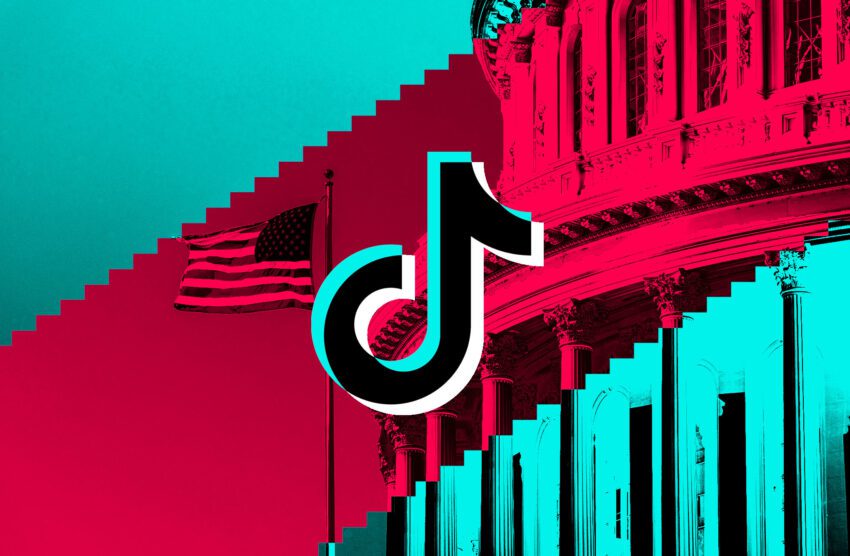
the tiktok deal raises more questions than President Donald Trump has signed an executive order aimed at “saving” TikTok, yet the details surrounding the deal raise significant legal and operational questions.
the tiktok deal raises more questions than
Background of the TikTok Controversy
TikTok, a popular social media platform owned by the Chinese company ByteDance, has been at the center of a geopolitical storm since 2020. The app gained immense popularity among American users, particularly among younger demographics, for its short-form videos and engaging content. However, concerns about data privacy and national security led the Trump administration to take a hard stance against the app, citing fears that user data could be accessed by the Chinese government.
In August 2020, President Trump issued an executive order that threatened to ban TikTok unless it was sold to a U.S. company. This move was part of a broader strategy to confront China over various issues, including trade practices and technology theft. The administration argued that the app posed a risk to American users, claiming that the Chinese government could exploit the platform to gather sensitive information.
The Executive Order and Its Implications
On September 20, 2020, President Trump signed the executive order, which mandated that TikTok’s U.S. operations be divested from its Chinese parent company. The order aimed to ensure that the app would be “American-operated,” thereby addressing national security concerns. However, the specifics of the deal remain murky.
Ownership and Operational Control
One of the most pressing questions following the executive order is who will ultimately own TikTok’s U.S. operations. The Trump administration has not disclosed the identity of the new owners or the extent of their ownership. This lack of transparency raises concerns about the effectiveness of the deal in addressing the original issues that prompted the executive order.
Industry analysts have speculated that potential buyers could include major American tech companies, but no formal announcements have been made. The uncertainty surrounding ownership complicates the situation further, as stakeholders are left in the dark about the future of the app in the U.S. market.
Legal Concerns
Another significant aspect of the TikTok deal is its legal standing. Critics have raised questions about the legality of the executive order itself, arguing that it may not hold up in court. Legal experts have pointed out that the administration’s approach could be seen as an overreach of executive power, potentially violating due process rights. The lack of clarity regarding the legal framework governing the deal has led to speculation about its enforceability.
According to legal analysts, the executive order could face challenges on multiple fronts, including First Amendment rights and the legality of banning a platform based on national security concerns. The potential for litigation adds another layer of complexity to an already convoluted situation.
Stakeholder Reactions
The reactions to the TikTok deal have been mixed, with various stakeholders expressing their concerns and opinions. On one hand, some lawmakers have praised the administration’s efforts to address national security risks. They argue that allowing a foreign-owned app to operate in the U.S. without oversight could jeopardize user data and privacy.
On the other hand, civil liberties advocates have criticized the executive order as an infringement on free speech and an example of government overreach. They argue that the administration’s actions could set a dangerous precedent for how the government regulates technology and social media platforms.
Public Sentiment
Public opinion on TikTok remains divided. While many users enjoy the platform and its creative features, concerns about data privacy have led some to reconsider their usage. A survey conducted by a leading research firm found that a significant percentage of TikTok users were aware of the national security concerns but continued to use the app due to its entertainment value.
This division in public sentiment complicates the narrative surrounding the app. While the Trump administration aims to position itself as a protector of American interests, many users feel that the app’s benefits outweigh the potential risks. This disconnect between government actions and public opinion underscores the challenges faced by policymakers in navigating the digital landscape.
The Future of TikTok in the U.S.
As the situation unfolds, the future of TikTok in the U.S. remains uncertain. The executive order has set the stage for a potential sale, but without clear ownership and operational guidelines, the platform’s fate hangs in the balance. The ongoing legal challenges could further delay any resolution, leaving users and stakeholders in limbo.
Potential Outcomes
Several potential outcomes could arise from the current situation:
- Successful Sale: If a U.S. company successfully acquires TikTok’s operations, the app could continue to operate under American ownership, potentially alleviating national security concerns.
- Legal Challenges: If the executive order is challenged in court, it could lead to a prolonged legal battle that may ultimately determine the app’s future in the U.S.
- Ban on TikTok: If no agreement is reached and legal challenges fail, the Trump administration could proceed with a ban, effectively removing the app from the U.S. market.
Global Implications
The TikTok saga is not just a U.S. issue; it has global ramifications. Other countries are closely watching how the situation develops, as it could set a precedent for how governments regulate foreign technology companies. The outcome of the TikTok deal may influence similar actions in other nations, particularly those with rising concerns about data privacy and national security.
Moreover, the ongoing tensions between the U.S. and China could escalate further, impacting not only TikTok but also other tech companies operating across borders. The geopolitical landscape is shifting, and the TikTok case serves as a microcosm of the broader challenges posed by globalization and digital technology.
Conclusion
The executive order signed by President Trump to “save” TikTok has opened a Pandora’s box of questions and uncertainties. While the administration aims to address national security concerns, the lack of clarity regarding ownership and legal implications raises doubts about the effectiveness of the deal. As stakeholders react and public sentiment remains divided, the future of TikTok in the U.S. hangs in the balance. The outcome of this situation could have lasting implications, not just for TikTok, but for the broader landscape of technology regulation and international relations.
Source: Original report
Was this helpful?
Last Modified: September 27, 2025 at 1:37 am
0 views















